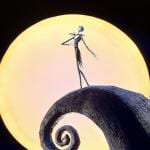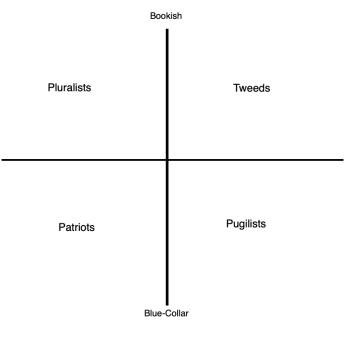 Among all theological concepts, one I find particularly difficult to get my head around is what St. Thomas Aquinas called the “vice of curiosity,” or curiositas. Aquinas exposits the concept in detail, explaining that “there may be sin by reason of the appetite or study directed to the learning of truth being itself inordinate.” But at least to my mind, some of Aquinas’s more precise formulations of this sin—“when a man desires to know the truth about creatures, without referring his knowledge to its due end, namely, the knowledge of God” and “when a man studies to know the truth above the capacity of his own intelligence”—are somewhat challenging to parse.
Among all theological concepts, one I find particularly difficult to get my head around is what St. Thomas Aquinas called the “vice of curiosity,” or curiositas. Aquinas exposits the concept in detail, explaining that “there may be sin by reason of the appetite or study directed to the learning of truth being itself inordinate.” But at least to my mind, some of Aquinas’s more precise formulations of this sin—“when a man desires to know the truth about creatures, without referring his knowledge to its due end, namely, the knowledge of God” and “when a man studies to know the truth above the capacity of his own intelligence”—are somewhat challenging to parse.
Indeed, on its face the idea of curiositas as a kind of sin strikes me as theologically problematic. If God Himself is the source of all truth, the infinitely intelligible fountainhead of all reality, and the human intellect and heart are restless until they rest in Him, how can growth in knowledge of the created order—knowledge which is, by analogy, a form of knowledge of Him—be something sinful? And is not the human soul called toward ever-greater understanding of its Creator, which is by definition an infinite project exceeding the bounds of any finite intellect?
Over the last few months, though, I’ve come to see the wisdom of Aquinas’s underlying point—even though I don’t know that I’d formulate it in the same words.
Specifically, it seems obvious to me that an awful lot of psychologically self-destructive behavior can be justified by the excuse that one is “just staying informed” about what’s going on in the world. The ongoing pandemic has given rise to the new verb “doomscrolling”—staring into the vortex of automatically refreshing smartphone feeds bearing worse and worse news. And Twitter, Google, Facebook, YouTube and many other sites are happy to serve up an endless banquet of shock and madness—that sort of content, after all, is what lures viewers to join platforms in the first place.
Something about this “doomscrolling” behavior, I think, corresponds to what Aquinas meant by curiositas. When I find myself headed down a nihilistic rabbit hole, I’m subconsciously aware that my pursuit of knowledge of the world is oriented toward the satisfaction of a distinctly prurient set of desires: I want to see people like me dunking on people not like me; I want to get angry and motivated to fight for my own interests; I want to feel smug that my life is better than the real-world horror stories I’m reading online. I am, in short, “turned in on myself”—or as St. Augustine put it in the Latin, incurvatus in se, ensnared in a state of sinful alienation.
By contrast, if I turn off the internet and pick up an edifying book, I (usually) can interrupt that destructive dopamine circuit. Under those circumstances, my pursuit of greater knowledge is outward-oriented: I (implicitly) approach the author of a text as someone from whom I can learn, and I seek to learn about a subject that is substantive enough to warrant publication in a book rather than transmission via a fleeting internet post. That’s not to say that there’s something magical about the printed word that pushes back against the “prurient gaze” (the history of pamphleteering is proof enough of that) but rather that under contemporary conditions, the most destructive and self-serving content seems to circulate primarily online.
In all events, it seems to me that it’s worth considering whether what we describe to ourselves as “staying plugged in to current events” and “following the news” really is oriented to any end beyond ourselves. To be sure, for those of us engaged directly in public life, some degree of always-on awareness is necessary. But even then, the vice of curiositas is always lurking close at hand.












